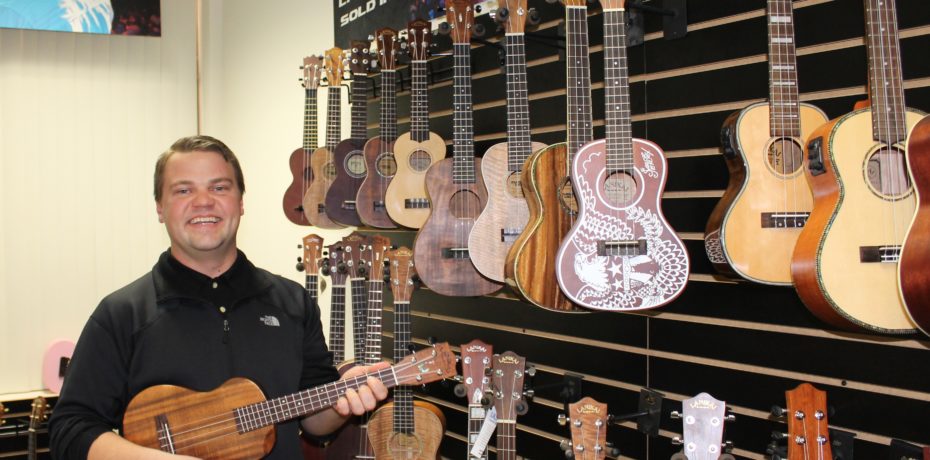By Davy Jones
Many would consider metal to be Richmond’s main musical export, but an instrument with a slightly more dulcet tone is bringing our city’s creativity and ingenuity to households all over the globe—the ukulele.
From the Richmond office of Hohner, the storied German instrument manufacturing company, Leon Lewis heads up Lanikai, which has become the world’s largest ukulele brand by serving a recent, multi-continent boom in the small stringed instrument’s popularity.
“It’s really coming into its own,” Lewis says. “Jake Shimabukuro—he’s the guy who really started to open this thing up. People didn’t take the ukulele seriously. Unless you’d been to Hawaii, and had a vested interest, you wouldn’t think that someone could play this virtuoso style…on the ukulele. It just wouldn’t click to you. He really changed things.”
The instrument’s usage has spread throughout the musical landscape—Zach Condon of Beirut and Merrill Garbus of tUnE-yArDs have played Lanikai ukuleles—and millions of new players worldwide started learning over the past decade. Lanikai (Hawaiian for “heavenly sea”) responded to the flood of demand by leveraging Hohner’s 150-year record of success making harmonicas, accordions, melodicas and more.
“We were able to be the first ones to say ‘OK, if everyone wants ukuleles, we can go get ukuleles. We’ve got the money, we’ve got the connections, we got the resources,” Lewis says about his companies ability to meet market demand. He attributes the frenzy of four-string strumming to the instrument itself, and the way it brings experienced and inexperienced musicians closer together.
“It’s really accessible. Anyone can pick it up and play a C chord. It’s one finger—one finger. It’s an instrument that non-musicians can pick up and learn. We want to find a way to relate with people through the ukulele that they don’t have to be type of person who wears a floral shirt all the time. That’s not me.”
Lewis’ ties to Richmond’s music community run deep, having played in bands and started the Worthless Junk record label, which released albums by area success stories Black Girls, White Laces, the Trillions and No BS! Brass Band. He’s also helping to turn the ukulele’s accessibility into a tool for community outreach, partnering with [composer and bandleader] Samson Trinh on his Uke ‘n’ Roll program, which holds educational events throughout Virginia.
“We teach people three chords. ‘Here’s a Beatles song, a Coldplay song, and now you play an instrument.’ [Uke ‘n’ Roll] has had all sorts of events this year. They had an event at the Landmark, they had Jason Mraz play and a huge chorus of the Uke ‘n’ Roll classes.” But Lanikai isn’t just riding out a hot market of newcomers. They’re adapting so the future is bright regardless of trends, opening a facility in Hawaii to manufacture high-end models and developing a new, solid-body ukulele with a “big, wide-open reverb sound.”
“With this,” Lewis says, “you could do all sorts of weird stuff.”
For Lanikai, the way forward involves a wide range of product offerings, from the first ukulele you own all the way up to the masterpieces.
“Now we know all of these ukes are out there, we have all of these people looking at what we’re doing,” Lewis says. “So where do we go from here? We’re going to do something that’s a little more permanent [by] creating an experience that’s not just ‘Oh, aloha!’ Let’s find the innovators who are out there with this instrument. Let’s find the expressionists who are creating beautiful music with it, and let’s become craftsmen. Let’s become the best at what we do and encourage people to pursue this—to be part of this lifestyle.”

